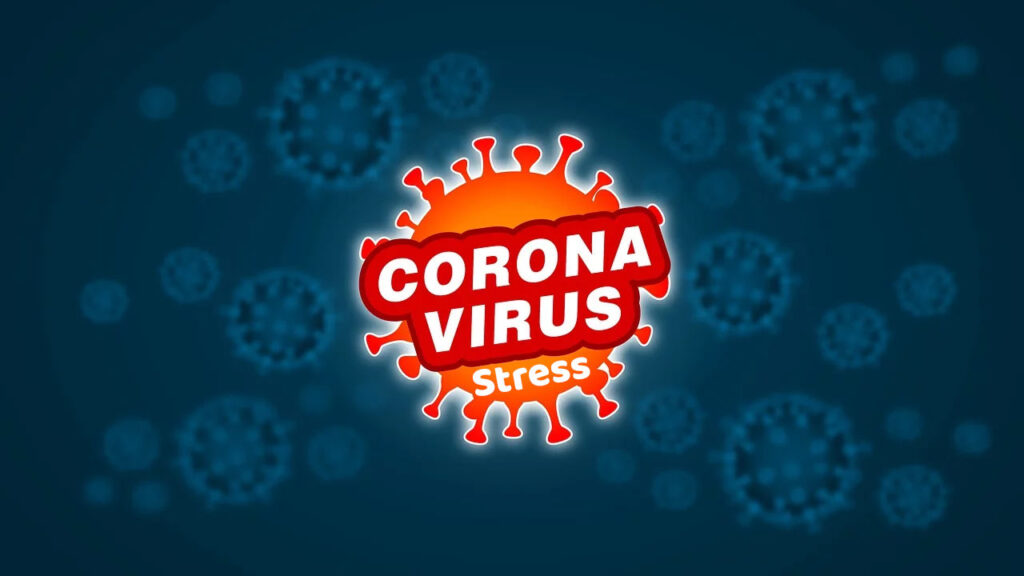Talk to a Psychologist for Online Counselling
Book Appointment Now 100% Private & Secure
Convenient, 100% anonymous, safe, certified professional counseling online.What is ‘Anxiety’?
According to the American Psychological Association (APA), ‘anxiety’ is defined as “an emotion identified by apprehension and somatic symptoms of tension in which an individual predicts imminent danger, catastrophe, or misfortune. The body often stimulates itself to meet the perceived threat such as muscle tension, breathing gets faster, and the heart beats more rapidly. Anxiety may be distinguished from fear both conceptually and physiologically, although the two terms are often used interchangeably. Anxiety is accounted as a future-oriented, long-acting response widely focused on a diffuse threat, whereas fear is an appropriate, present-oriented, and short-lived response to a clearly identifiable and specific threat” (APA Dictionary of Psychology, 2022).
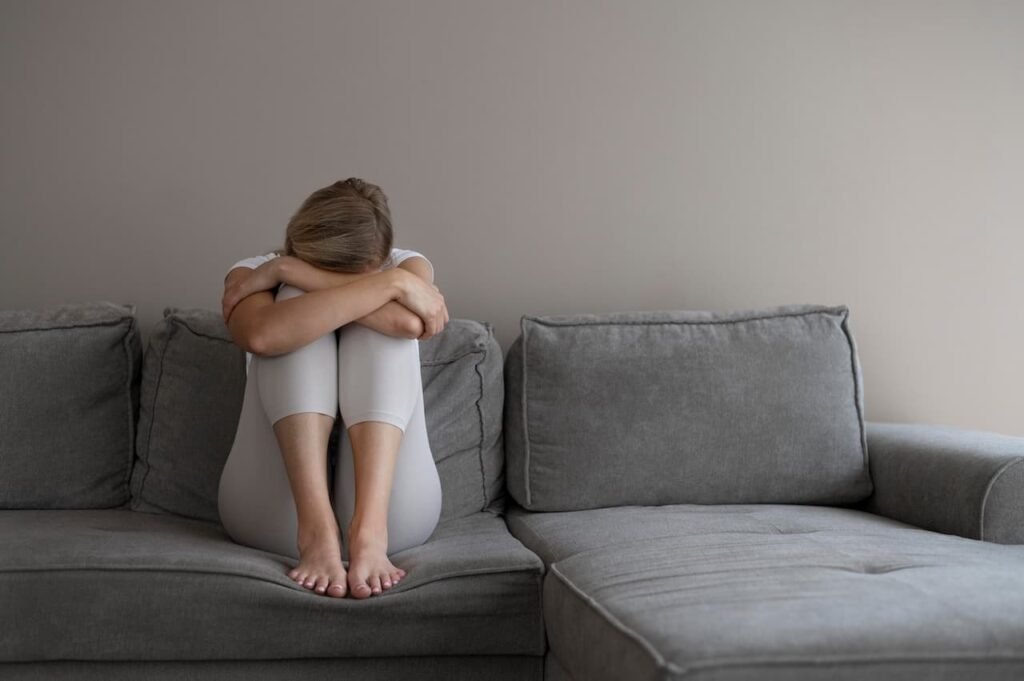

Anxiety is our body’s natural response to stress. It can be defined as a diffuse, vague, very intense, excessive and persistent feeling of fear and apprehension.
Anxiety disorder is an umbrella term that consists of many types of anxiety disorder with a difference in their symptoms. The types of anxiety disorders are – Generalized Anxiety Disorder, Selective Mutism, Social Anxiety Disorder (also known as, Social Phobia), Panic Disorder, Agoraphobia, Specific Phobia and a few more.
Symptoms of Anxiety
These are the symptoms of anxiety disorder to look out for:
- Rapid heart rate
- Difficulty breathing
- Sweating
- Feeling tired/dizzy/unsteady
- Recurring thoughts
- Trembling or Shaking
- Restlessness
- Tension
- Irritability
- Palpitation
- Dry mouth (not due to medication or dehydration)
- Chest pain or discomfort
- Nausea or abdominal distress
- Feeling of choking
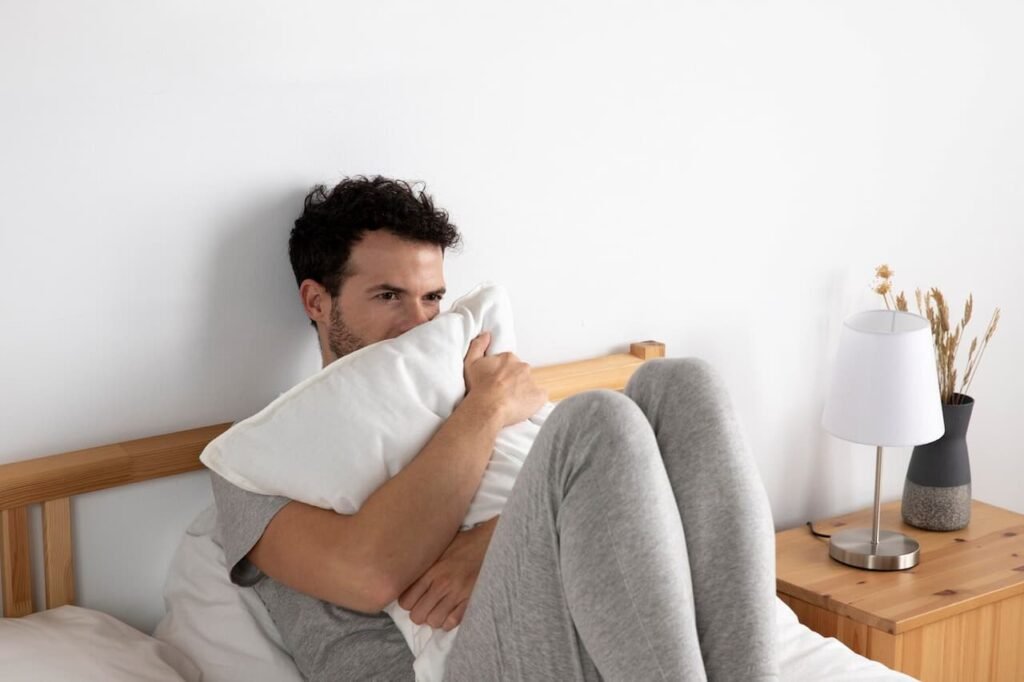

Causes of Anxiety
Genetics – If someone in your blood relation have/had anxiety then there are changes that you might have to deal with anxiety as well.
Environmental Factors – Some traumatic experiences or crisis situations can build up stress and anxiety over time.
Drugs/Alcohol – If you consume drugs or alcohol frequently then it can be a risk factor or causal factor for your anxiety.
Physical Health Issues – Many types of physical health issues such as diabetes, heart disease, respiratory disease, thyroid problems, drug misuse/withdrawal etc. can increase the risk of anxiety.
Want to learn more about the causes of anxiety? Read more
6 Ways to deal with Anxiety
1. Grounding Techniques
This will help you to be in the present moment and it will also help you to stop the recurring thoughts that make you anxious. These are a few types of grounding techniques that you can use:
- Name all the objects you see. For example – fan, ceiling, walls, curtain, tree etc.
- Count backwards from 100 by 7. For example – 100, 93, 86, 79…
- Spell your name and 4 other people’s names backwards. For example – If your name is ‘John’ then you’ll spell it as ‘nhoJ’.
- Read something backwards, letter by letter. For example – If the sentence is ‘This painting is beautiful’ then you will read this as – ‘lufituaeb si gnitniap siht’.
2. Deep Breathing Exercise
This deep breathing exercise helps to release your stress and anxiety with each breath that you’ll exhale. In this exercise, you have to inhale for 4 seconds, hold your breath for 4 seconds and then exhale for 4 seconds with puckered lips. By each exhale, release your anxious thoughts along with it.
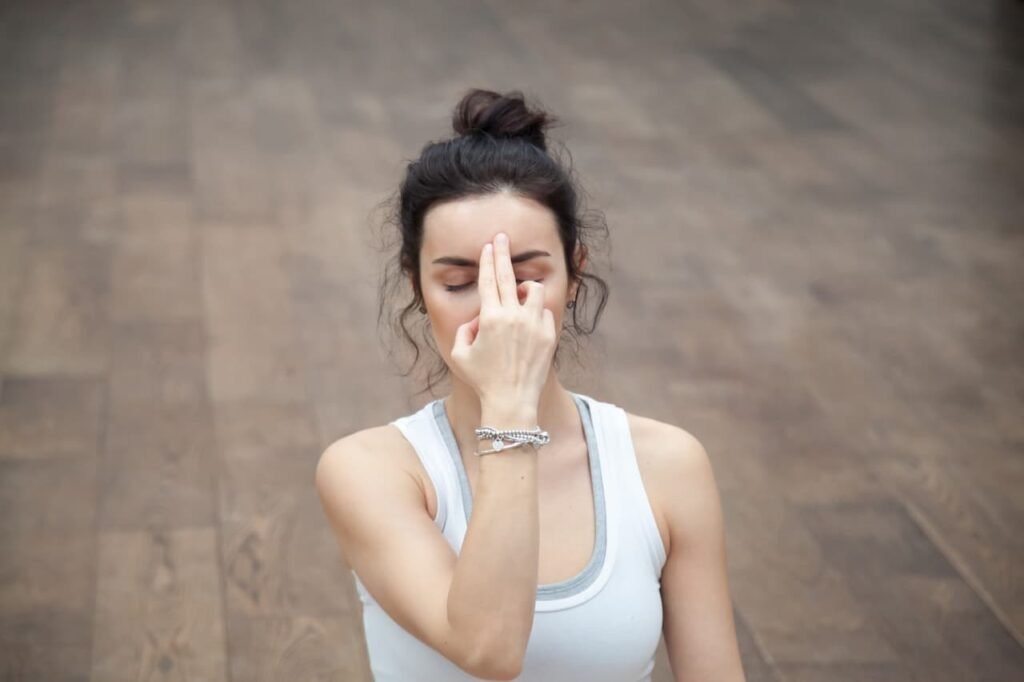

3. Restructuring Your Thoughts
In anxiety, we tend to recall and recite the same thoughts that make us anxious. These recurring thoughts are mostly negative and may not be based on facts. In such situations what you can do is to restructure your thoughts. Think rationally about your thoughts, the origin of your thoughts and ask for the evidence of your thoughts. Is your thoughts based on facts or is it just based on your delusion or overthinking? Think about it.
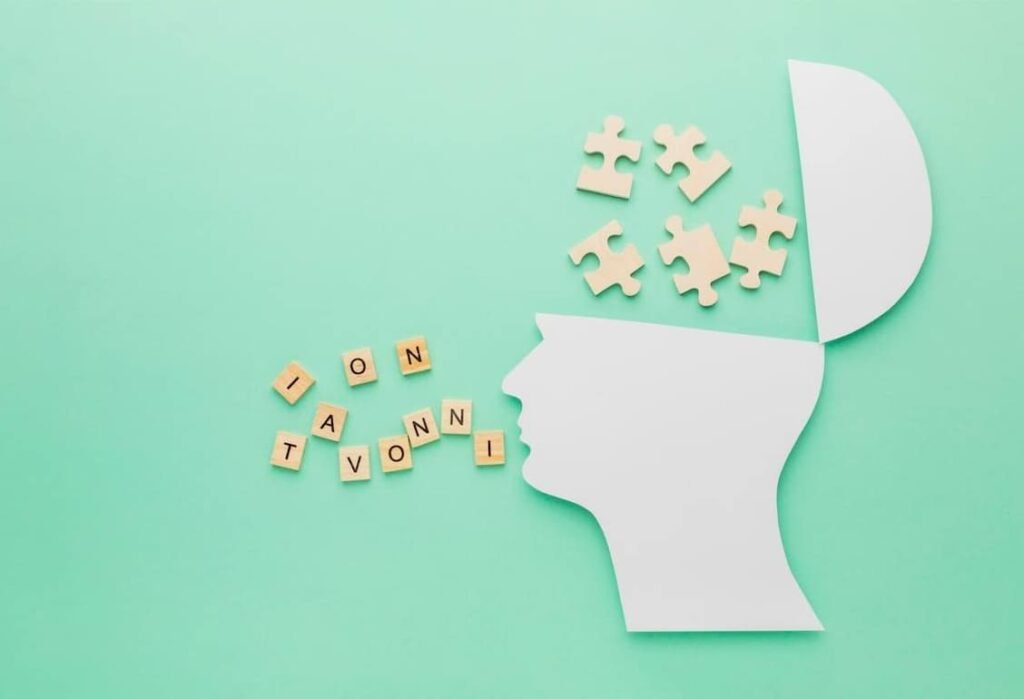

4. Positive Self Talks
What we say to ourselves are very important because the things we say to ourselves impact us unconsciously. Hence, it is very important that we say positive and encouraging things to ourselves. When we say negative things about ourselves to us it lowers our self-esteem, makes us doubt ourselves and others. While you have negative thoughts about yourself or your surrounding situations, positive self-talk will help you to think differently, solve your problems and will make you efficient for coping with challenges and hardships. For example – I am worthy. I am loved, I can do it etc.


5. Progressive Muscle Relaxation Technique
It is a technique that involves tightening and loosening muscles but one part of body muscle at a time. For example – tightening right arms muscles while keeping other body parts at ease. This involves a procedure in which you have to tighten each part of body muscle one by one for 10 seconds and then release the muscle. While doing this you have to focus on the muscle tension in that part of the body. This is known as ‘progressive’ muscle relaxation because you can do the procedure from either head to toe or toe to head. This relaxation technique not only helps in reducing anxiety but will also help you to sleep better. You can also listen to soothing music in the background while doing this relaxation technique.


6. Analyze the Probability of the Feared Event
Analyzing your fear or anxiety from different perspectives gives you a new way to look at the situation. Think about the reasons for your fear/anxiety, think about the intensity of it, think about the self-talks that increase your anxiety, think about the outcome if your fear actually occurs. This will make you think and analyze the feared situation and will force you to think about the realness of your fear or anxiety.
Get in touch with Psychologists and counselors at OnlineCounseling4U
OnlineCounseling4U offers the best counseling service for anxiety, whether your Anxiety originated from your past experiences or from your imagined experience. You can find certified psychologists who speak your own language and that too while you are in your own comfort place, your home. You can have one on one sessions without breaching confidentiality. You can talk to the psychologists freely because in OnlineCounseling4U psychologists are non-judgemental, open-minded and accepting in nature. You can book your appointments for any time of the day. The psychologists are always ready to help you with your issues.


Call us to book a session today.
Contact us at +91 9811335150
Email us – info@onlinecounselling4u.com
Follow us on Facebook or Instagram
Talk to a Psychologist for Online Counselling
Book Appointment Now 100% Private & Secure
Convenient, 100% anonymous, safe, certified professional counseling online.

